The program on board
Some of these challenges come from navigating the ship, others come from living on board, and others are proposed by the crew as a way to help you engage more, enjoy more, and get to know yourself better.
With the right mindset and proper guidance, the whole experience can help you develop a set of skills that are essential for everyone’s life.
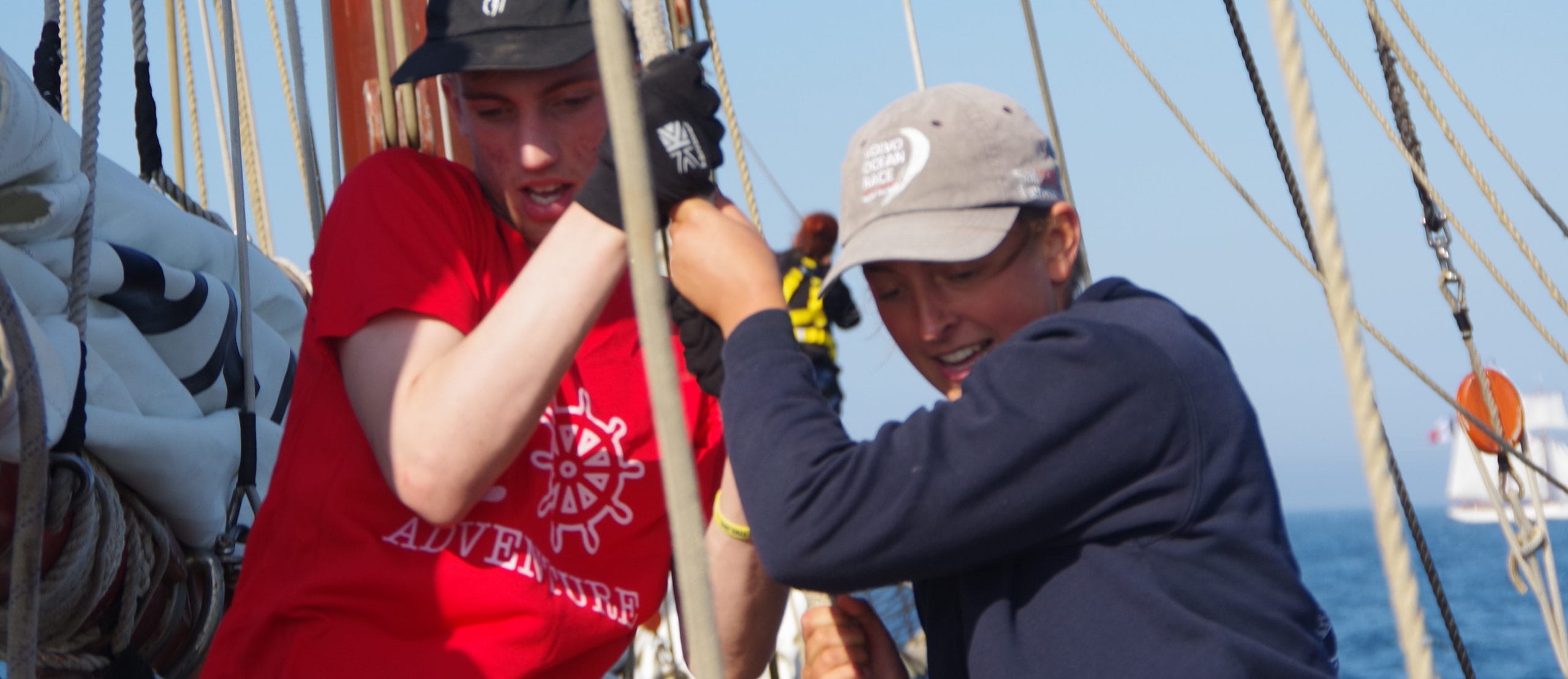
The 8 skills of our program

Intercultural communication

Emotional intelligence
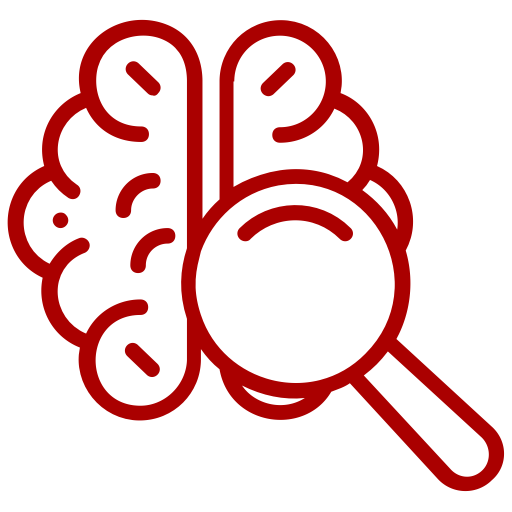
Critical thinking

Teamwork
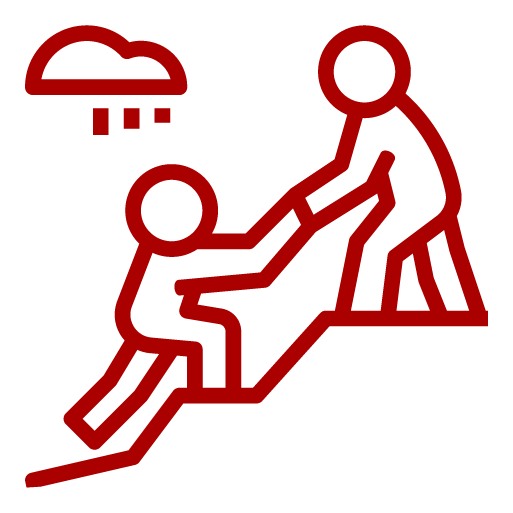
Leadership

Responsibility
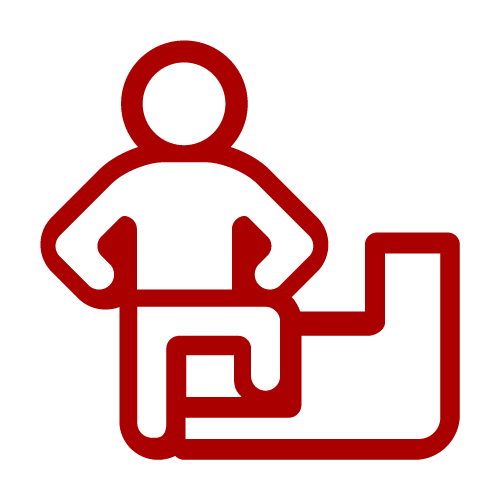
Courage

Resilience
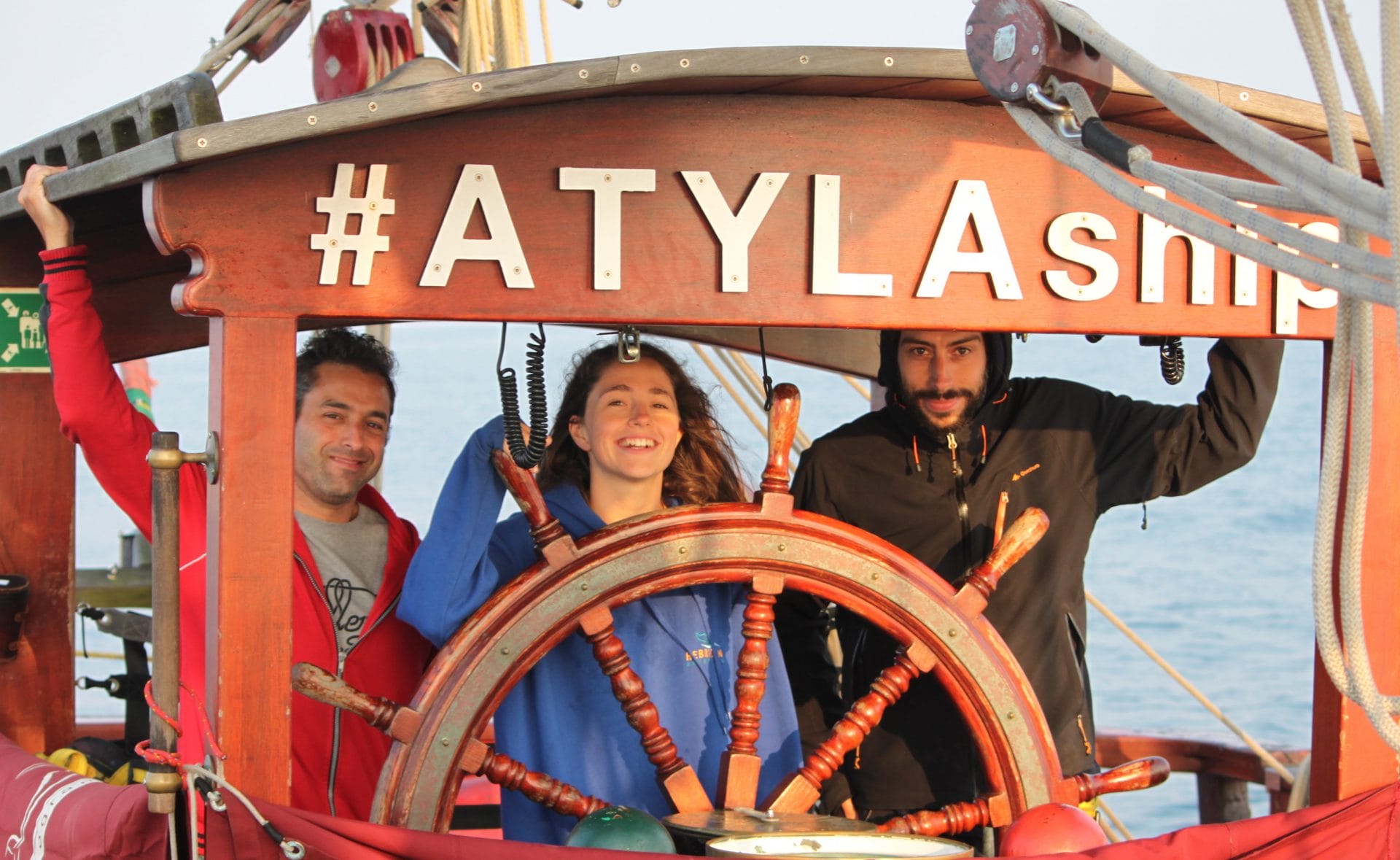
These skills affect all aspects of your life. Some of them even affect your relationship with yourself. That’s why this is called personal development: because it helps you become a better person in general.
Of course, personal development also means professional development. Many of the skills you will develop during your adventure will also help you become a better employee, a better boss and a better entrepreneur.
And let’s not forget about social development. These life skills make you also a more conscious, more responsible and more constructive member of society.
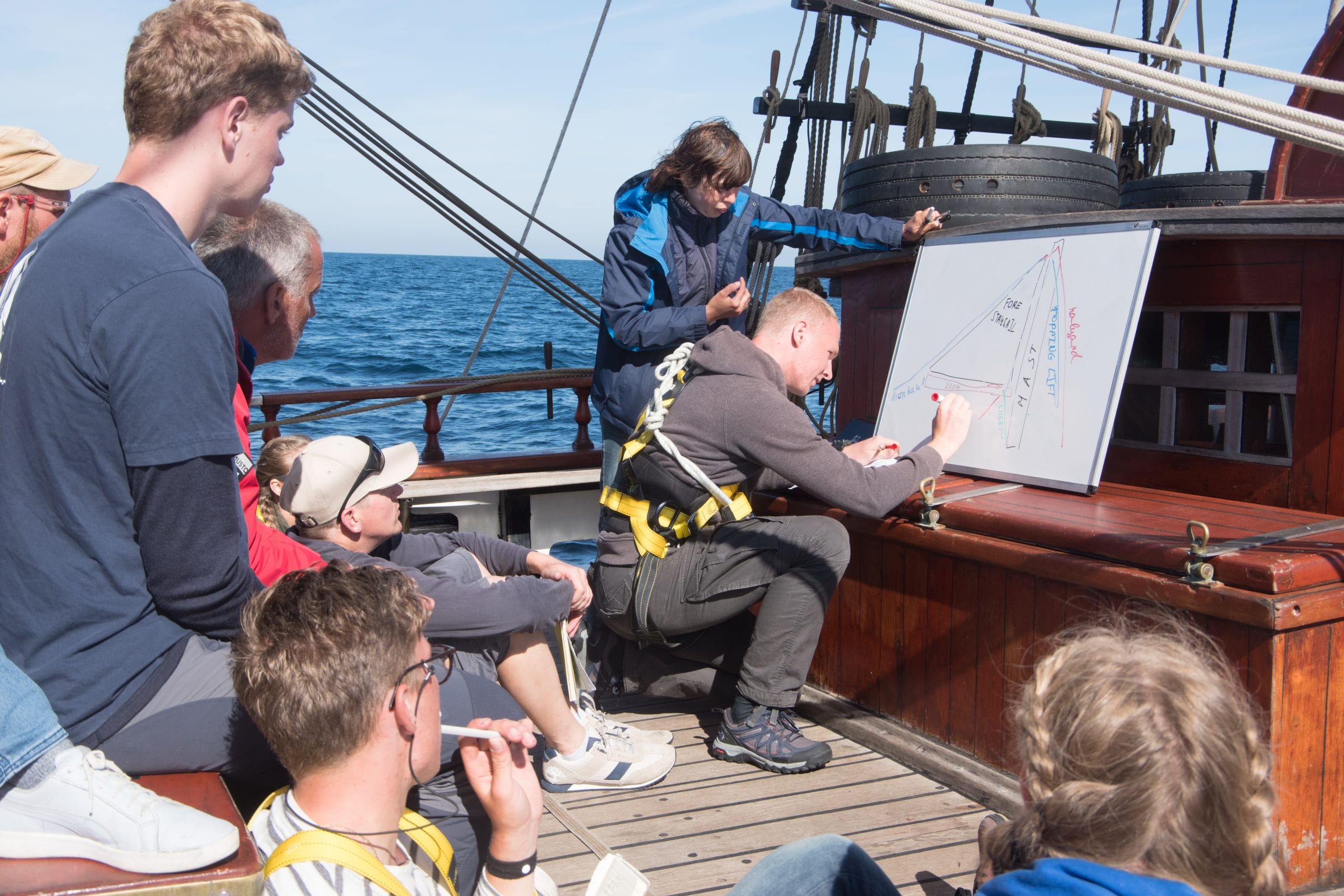
Learning about sailing
(a.k.a. sail training)
Many of the people that join Atyla do it also because they love the idea of sailing a Tall Ship, and learning the basics of how to sail.
Of course, the challenges related to manning and navigating the ship are an opportunity to learn about sailing. You can do this in as much detail as you want because most in the permanent crew are expert sailors.

Challenges and reflections
During each trip, the members of the crew propose challenges according to their role on board, their interests and their expertise. The coach on board also keeps an overview of the challenges and makes sure that there is enough variety.
Most times, the person proposing the challenge doesn’t say “learn from me”. They say “let’s learn from each other” or “let’s learn by doing”.
Some challenges are competitive, but in most of them (just as in life) you’re mostly competing with yourself. The result of the challenge is not as important as what you learn while facing it.
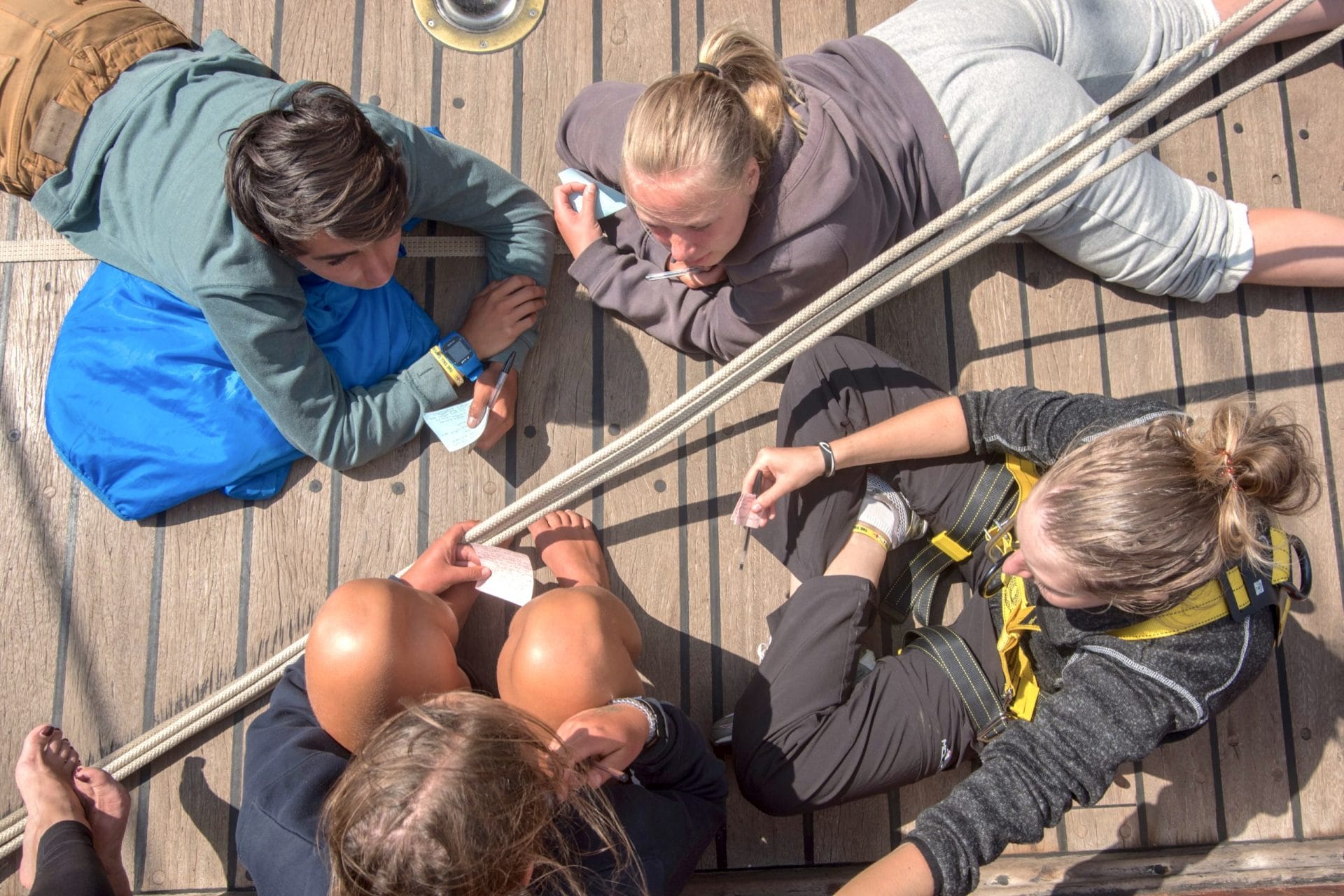
Some of the challenges require a moment of reflection, either in a group or individually (or both).
This reflection tries to answer all or some of the following questions:
What did I learn during this challenge…
- from my attitude when it was proposed?
- from how easy/hard was for me to face it?
- from the final result?
- through my interaction with others?
- in relation to one or more life skills?
Who will sail with you?
Types of challenges
There are many challenges that can be part of our trips.
A good way to imagine them better is by grouping them according to specific attributes:
According to the reason for the challenge:
- Operative: Because the ship needs to be sailed to its destination safely and in good shape.
- Communal: Because we are a group of people that might not know each other, and that needs to share a small space moving in the middle of the sea.
- Engaging/Playful: Because we came to Atyla to be adventurous, to interact with others, to learn and do new things.
According to how the challenge is developed:
- Collaborative: Trying to achieve synergies.
- Competitive: To fuel motivation and creativity (of course it’s a playful competition).
- All of the above: You can be part of a group that is competing with another group.
- None of the above: Individual challenges in which you don’t need to engage with other people.
According to how the challenge engages you:
- Mental: Putting your concentration or your memory to the test.
- Physical: Might be tiring or even exhausting.
- Emotional: Exploring your emotions and your connection to them.
- Communicative: Expressing yourself and trying to understand others better.
According to who the challenge is for:
- To everyone who’s up for it.
- To all the participants.
- To the members of a watch.
- To someone specifically.
According to how the post-reflection is done:
- In a group: A moment is arranged so that everyone can share their experiences, conclusions and thoughts.
- One-to-one: Either with the person that proposed the challenge, with the coach or with a fellow shipmate.
- Internally: With yourself.
According to the “deadline” of the challenge:
- Instant: They happen right after they are proposed.
- With a deadline during the trip: for example, by tomorrow at lunch, or by the time we arrive at a port.
- With a deadline after the trip: It can be fixed (e.g. in a year from now), or open (e.g. next time you visit a relative).
- Lifelong: Some challenges have no real deadline, they stay with you for as long as you want.